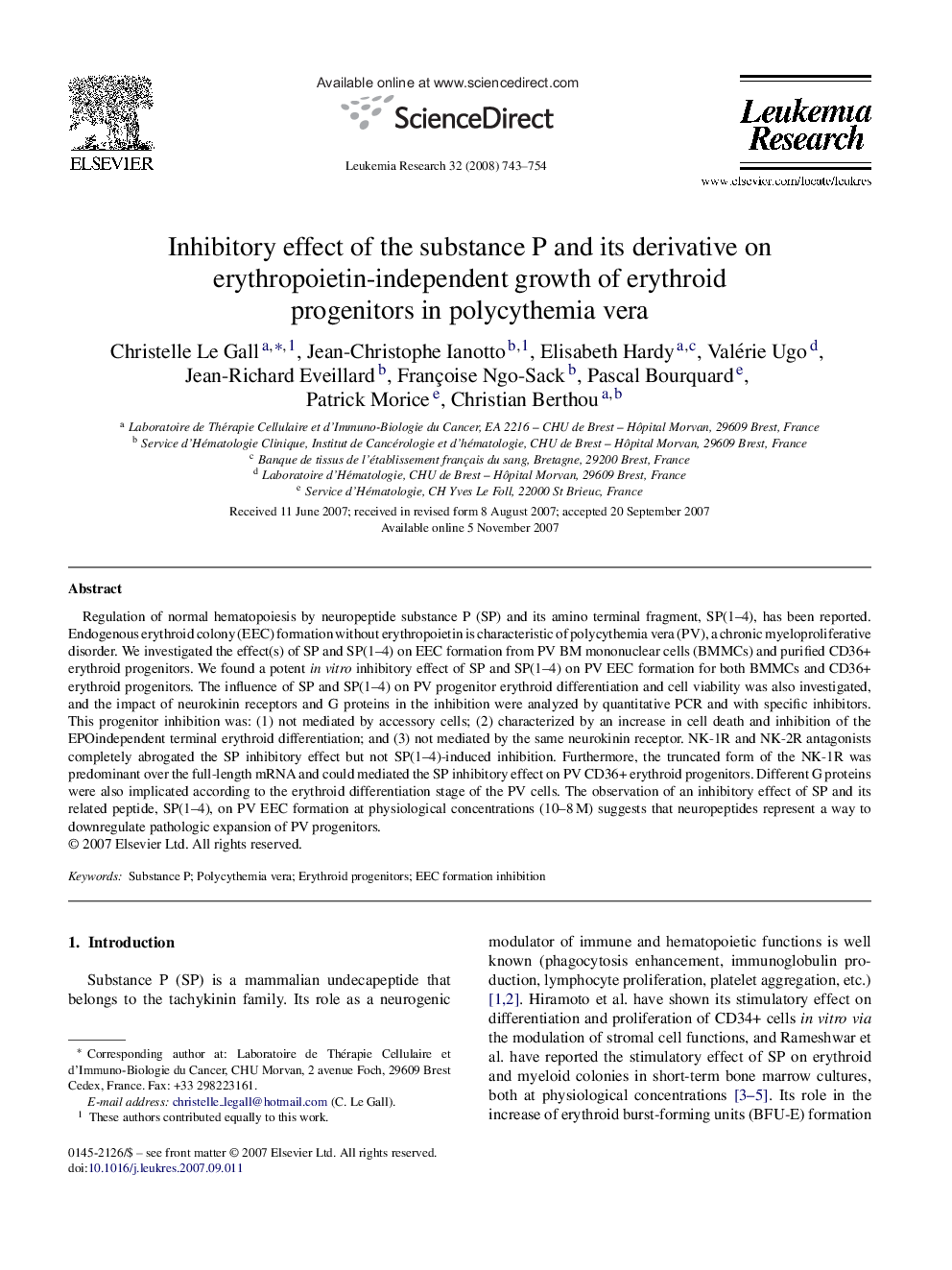| Article ID | Journal | Published Year | Pages | File Type |
|---|---|---|---|---|
| 2139089 | Leukemia Research | 2008 | 12 Pages |
Regulation of normal hematopoiesis by neuropeptide substance P (SP) and its amino terminal fragment, SP(1–4), has been reported. Endogenous erythroid colony (EEC) formation without erythropoietin is characteristic of polycythemia vera (PV), a chronic myeloproliferative disorder. We investigated the effect(s) of SP and SP(1–4) on EEC formation from PV BM mononuclear cells (BMMCs) and purified CD36+ erythroid progenitors. We found a potent in vitro inhibitory effect of SP and SP(1–4) on PV EEC formation for both BMMCs and CD36+ erythroid progenitors. The influence of SP and SP(1–4) on PV progenitor erythroid differentiation and cell viability was also investigated, and the impact of neurokinin receptors and G proteins in the inhibition were analyzed by quantitative PCR and with specific inhibitors. This progenitor inhibition was: (1) not mediated by accessory cells; (2) characterized by an increase in cell death and inhibition of the EPOindependent terminal erythroid differentiation; and (3) not mediated by the same neurokinin receptor. NK-1R and NK-2R antagonists completely abrogated the SP inhibitory effect but not SP(1–4)-induced inhibition. Furthermore, the truncated form of the NK-1R was predominant over the full-length mRNA and could mediated the SP inhibitory effect on PV CD36+ erythroid progenitors. Different G proteins were also implicated according to the erythroid differentiation stage of the PV cells. The observation of an inhibitory effect of SP and its related peptide, SP(1–4), on PV EEC formation at physiological concentrations (10–8 M) suggests that neuropeptides represent a way to downregulate pathologic expansion of PV progenitors.
